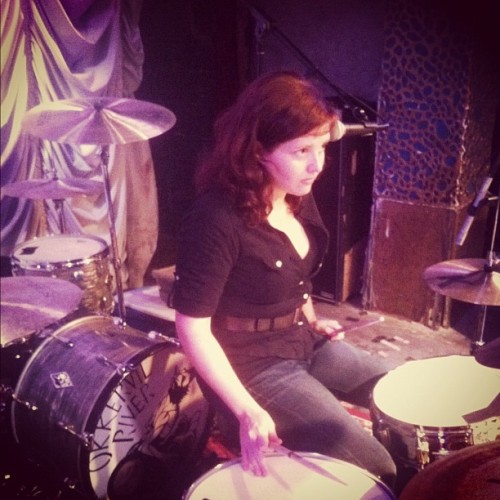Jacques Brautbar is an LA-based songwriter, producer, and founding member/guitarist of Phantom Planet.
I talked to him about the typical day of a songwriter, music licensing, and getting signed to Geffen as a high school senior. Check out the interview below!
After The Show: You co-produced and co-wrote Jasmine Ash’s album Beneath The Noise, which has been so successful getting sync placements. Do you approach songwriting thinking about what would appeal to supervisors, or is licensing an after-thought, completely separate from the creative composition process?
Jacques Brautbar: The licensing success for Beneath The Noise was a complete afterthought. She and I started the songs with no agenda. She and I just thought it would be fun to write a few songs and make an Ep as a sideproject. Then I got my friend and former bandmate, Sam Farrar, involved and we decided to make a full record. I find, if I try and write something “for sync” it never comes out well. I just write/produce the way I like, and it seems to be what supes [music supervisors] like too! So far…
What do you think about the future of music licensing/supervising? Will getting placements in film, TV, and commercials still be as lucrative or popular in 5 or 10 years?
I have no idea. If I knew, I’d make a killing in Vegas.
You’re a songwriter for EMI (now Sony/ATV?). What does your typical workday as a songwriter and producer look like? How many different artists do you work with at any given time?
I did switch over to SONY. I am constantly working with new writers and artists… A typical work day involves me drinking a lot of coffee and writing a song with a complete stranger. Which is totally bizarre. A lot of my writing sessions are like blind dates. Sometimes the chemistry is undeniable, while other times it’s best to stop early and get a bite to eat. I am, however, starting to have a balance of regulars and new people now in my rotation.
You’re also a music consultant for film and TV. What does that entail?
It basically means I help in whatever capacity the director wants. From authenticity in performance practice, to music suggestions for scenes.
What role has education (music or otherwise) played in your career? You started Phantom Planet at 15, so how did you balance the band with high school and homework? Did getting signed to Geffen & touring come after you graduated?
Phantom Planet got signed during my senior year of high school. By law, I needed to have a tutor at the studio on days I missed school. Other than that, it was just double duty. School during the day. Studio/rehearsal at night. Then homework late at night. We didn’t start touring until after I had graduated, so that wasn’t ever an issue.
What was your experience like at USC School of Music, especially as a musician who was in an already established, successful band?
It was great. I mean, I loved taking the music classes – music theory and music history especially. I never actually graduated though. Phantom Planet’s touring schedule kept me pretty busy. I went to USC off and on as a part-time student for a few years… over about a 7 year period.
You played guitar and toured with Uh Huh Her. How was that? What was it like going from a main band member to a more anonymous backup guitar player?
I had a lot of fun on that tour. At the end of the day, though, I didn’t like being a “hired gun” because I had no real connection to the music.
What songs did you write for Phantom Planet? My impression was that Alex was the primary songwriter, but you’re also credited as a songwriter. How did the band divvy up writing lyrics and music?
Alex was the primary songwriter. I wrote songs earlier on in the band’s career… mostly stuff on our first record Phantom Planet Is Missing and some things on the Polaroid collection.
Thanks Jacques. Check out Jacques Brautbar’s Twitter + Black Unicorn Music bio.







